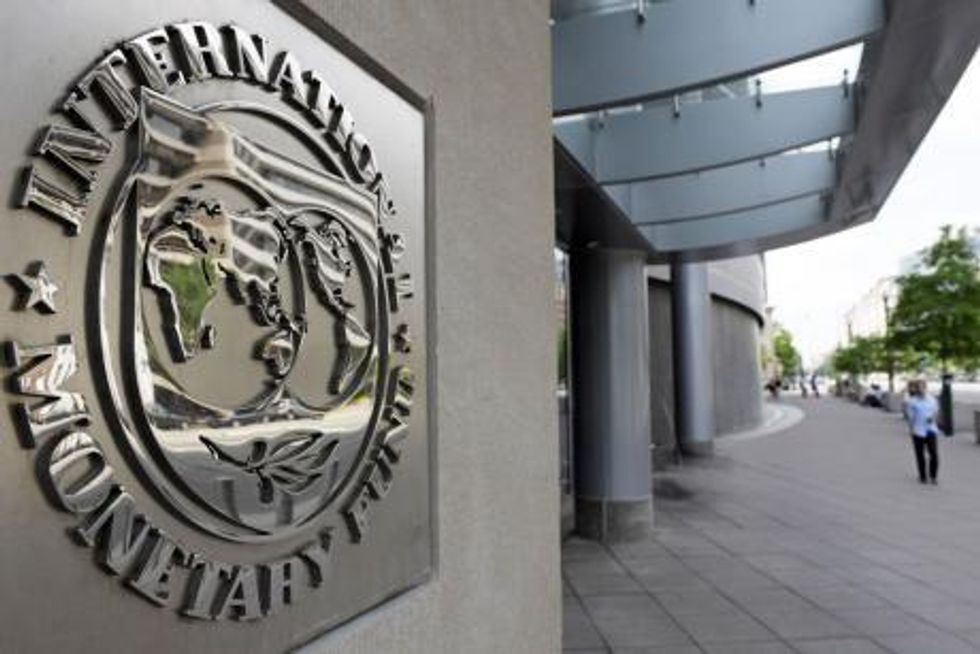Mar 27, 2014
The International Monetary Fund announced on Thursday a $14 to $18 billion "bailout" for Ukraine that is contingent on Kiev's imposition of stringent austerity measures.

The package, which is slated for approval by the IMF's board next month, will unlock credits of up to $27 billion from the United States, European Union, Japan, and other countries over the coming years if Ukraine imposes "economic reforms."
According toReuters, the IMF's requirements include: "allowing the national currency, the hryvnia, to float more freely against the dollar, increasing the price of gas for the domestic consumer, overhauling finances in the energy sector and following a more stringent fiscal policy."
Ukraine's new government on Wednesday passed a drastic increase in domestic gas prices, to take effect May first, and pledged to gradually reduce energy subsidies -- a widely unpopular move that former President Viktor Yanukovych refused to take.
The deal comes amid ongoing anti-austerity protests across Europe, including hundreds of thousands strong protests across Spain over the weekend. Critics charge that austerity measures, by eroding vital public goods and services, deepen crises of poverty and inequality.
_____________________
An Unconstitutional Rampage
Trump and Musk are on an unconstitutional rampage, aiming for virtually every corner of the federal government. These two right-wing billionaires are targeting nurses, scientists, teachers, daycare providers, judges, veterans, air traffic controllers, and nuclear safety inspectors. No one is safe. The food stamps program, Social Security, Medicare, and Medicaid are next. It’s an unprecedented disaster and a five-alarm fire, but there will be a reckoning. The people did not vote for this. The American people do not want this dystopian hellscape that hides behind claims of “efficiency.” Still, in reality, it is all a giveaway to corporate interests and the libertarian dreams of far-right oligarchs like Musk. Common Dreams is playing a vital role by reporting day and night on this orgy of corruption and greed, as well as what everyday people can do to organize and fight back. As a people-powered nonprofit news outlet, we cover issues the corporate media never will, but we can only continue with our readers’ support. |
Our work is licensed under Creative Commons (CC BY-NC-ND 3.0). Feel free to republish and share widely.
Sarah Lazare
Sarah Lazare was a staff writer for Common Dreams from 2013-2016. She is currently web editor and reporter for In These Times.
The International Monetary Fund announced on Thursday a $14 to $18 billion "bailout" for Ukraine that is contingent on Kiev's imposition of stringent austerity measures.

The package, which is slated for approval by the IMF's board next month, will unlock credits of up to $27 billion from the United States, European Union, Japan, and other countries over the coming years if Ukraine imposes "economic reforms."
According toReuters, the IMF's requirements include: "allowing the national currency, the hryvnia, to float more freely against the dollar, increasing the price of gas for the domestic consumer, overhauling finances in the energy sector and following a more stringent fiscal policy."
Ukraine's new government on Wednesday passed a drastic increase in domestic gas prices, to take effect May first, and pledged to gradually reduce energy subsidies -- a widely unpopular move that former President Viktor Yanukovych refused to take.
The deal comes amid ongoing anti-austerity protests across Europe, including hundreds of thousands strong protests across Spain over the weekend. Critics charge that austerity measures, by eroding vital public goods and services, deepen crises of poverty and inequality.
_____________________
Sarah Lazare
Sarah Lazare was a staff writer for Common Dreams from 2013-2016. She is currently web editor and reporter for In These Times.
The International Monetary Fund announced on Thursday a $14 to $18 billion "bailout" for Ukraine that is contingent on Kiev's imposition of stringent austerity measures.

The package, which is slated for approval by the IMF's board next month, will unlock credits of up to $27 billion from the United States, European Union, Japan, and other countries over the coming years if Ukraine imposes "economic reforms."
According toReuters, the IMF's requirements include: "allowing the national currency, the hryvnia, to float more freely against the dollar, increasing the price of gas for the domestic consumer, overhauling finances in the energy sector and following a more stringent fiscal policy."
Ukraine's new government on Wednesday passed a drastic increase in domestic gas prices, to take effect May first, and pledged to gradually reduce energy subsidies -- a widely unpopular move that former President Viktor Yanukovych refused to take.
The deal comes amid ongoing anti-austerity protests across Europe, including hundreds of thousands strong protests across Spain over the weekend. Critics charge that austerity measures, by eroding vital public goods and services, deepen crises of poverty and inequality.
_____________________
We've had enough. The 1% own and operate the corporate media. They are doing everything they can to defend the status quo, squash dissent and protect the wealthy and the powerful. The Common Dreams media model is different. We cover the news that matters to the 99%. Our mission? To inform. To inspire. To ignite change for the common good. How? Nonprofit. Independent. Reader-supported. Free to read. Free to republish. Free to share. With no advertising. No paywalls. No selling of your data. Thousands of small donations fund our newsroom and allow us to continue publishing. Can you chip in? We can't do it without you. Thank you.